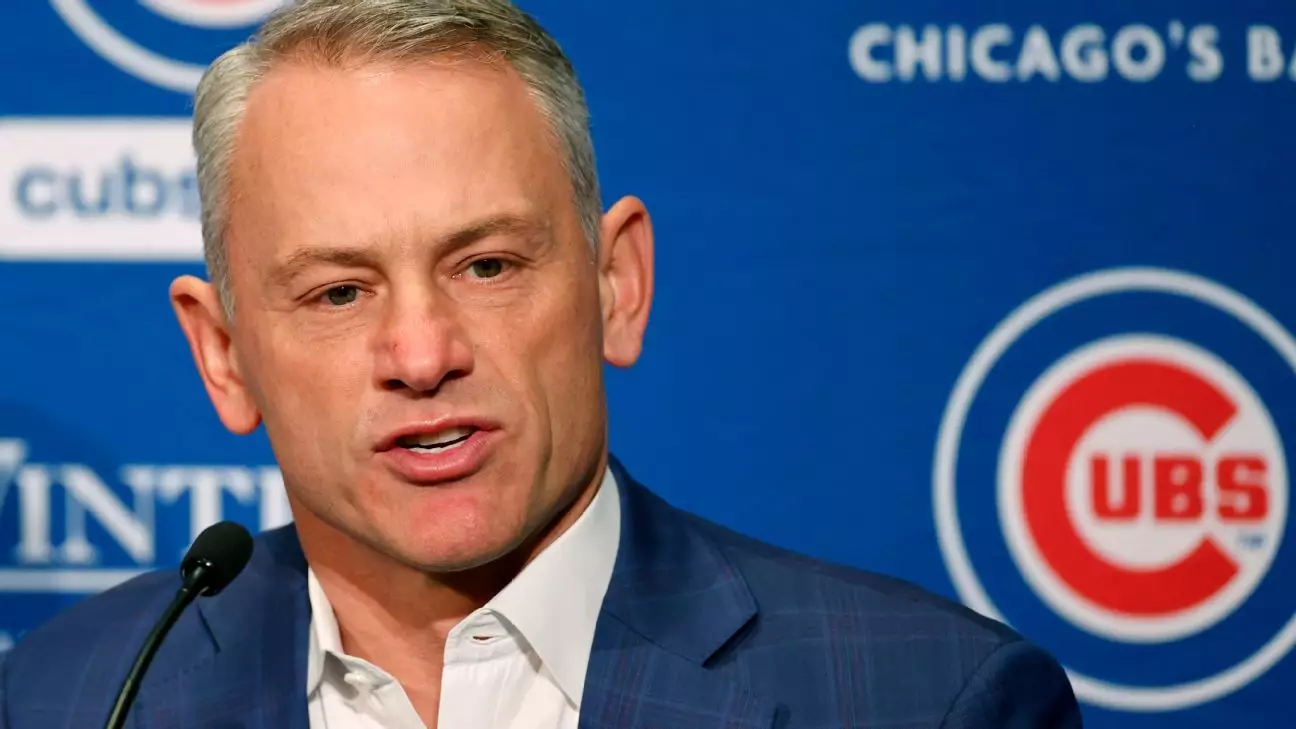As the Chicago Cubs embark on a pivotal season, all eyes are on president Jed Hoyer. This year marks the conclusion of Hoyer’s five-year contract, a timeline that hasn’t yet yielded a playoff appearance. The stakes are high—not just for team performance, but for Hoyer’s career trajectory as he navigates the complexities of franchise rebuilding. Within this context, the 2025 season looms as a potential turning point, underscoring the urgency for a competitive resurgence.
During the Cubs’ spring training kickoff, Hoyer voiced a sense of nervous anticipation, revealing that the uncertainty surrounding his future has induced a level of anxiety. “I haven’t had much uncertainty” in my career, he candidly stated. For a veteran who has served nearly 15 years in the franchise’s front office, the lack of guaranteed success is palpable. Hoyer’s tenure has involved a complex task: dismantling a once-dominant championship core and attempting to rebuild from the ground up. His comments capture not only personal unease but also a broader discontent prevalent among staff and fans, eager for a return to winning ways.
However, it is important to recognize that Hoyer is not entirely responsible for the team’s recent struggles. The decision-making landscape of Major League Baseball is tumultuous, and organizational rebuilding is inherently fraught with challenges. Hoyer’s strategy to prioritize drafting and selective free-agent signings, such as Dansby Swanson and Seiya Suzuki, demonstrates a calculated approach to roster construction, albeit one that has yielded mixed results thus far.
In a significant departure from previous offseasons, Hoyer demonstrated a newfound aggression in player acquisition during the last winter. The trade for outfielder Kyle Tucker marks a critical shift in strategy, reflecting an organizational commitment to enhancing competitiveness. While Tucker’s future with the team remains uncertain—he may only be a one-year asset—the move showcases Hoyer’s urgency to shift the team’s narrative positively.
Hoyer’s assessment of the National League landscape accentuates the need for immediate gains. Winning, he noted, will be particularly constrained this year, indicating that each game matters more than ever. The Cubs find themselves within a “competitive window,” suggesting that the next few months will be crucial for Hoyer and his front office. This urgency to succeed can either bolster team morale or place immense pressure on both management and players alike.
As the Cubs prepare for their season opener against the Los Angeles Dodgers in Japan, speculation surrounding potential free-agent signings becomes increasingly relevant. The name Alex Bregman has surfaced as a potential target, a player who could elevate the team’s performance significantly. Hoyer, however, maintains a noncommittal stance when discussing additional signings, indicating that the franchise is still evaluating its roster. Considering the Cubs’ recent pattern of late offseason signings, such as Cody Bellinger’s return last February, it is evident that flexibility and strategy remain hallmarks of Hoyer’s leadership.
Hoyer’s approach signals a cautious optimism but also highlights the necessity of balancing immediate needs with long-term vision. Should they succeed in securing a player like Bregman, the potential for improved wins could steer the franchise toward playoff contention, serving as a boon for Hoyer’s job security.
As October approaches, it becomes clear that Hoyer’s fate with the organization may hinge on the outcome of this season. A playoff run would likely solidify his position, enhancing his credibility and reinforcing the choices made thus far. Conversely, another disheartening season could catalyze a reevaluation of strategy and leadership. Hoyer acknowledges this reality, admitting that self-reflection is inherent to his posturing. The sentiment of “every arrow pointing up” may resonate positively, but it also carries significant risks.
As the Cubs look to redefine their legacy, an examination of Hoyer’s stewardship reveals both a nuanced understanding of organizational dynamics and the intense scrutiny he faces. Ultimately, the 2025 season will stand as a litmus test for not only Hoyer’s leadership but the entire Cubs organization. Will they reclaim their former glory, or will this year mark yet another chapter of disappointment? The answer hinges on collective performance, strategy execution, and perhaps a stroke of fortune.


Leave a Reply